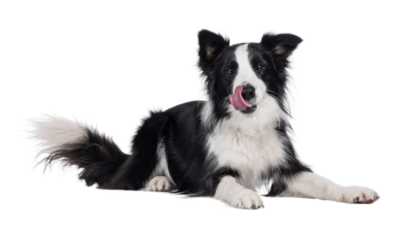The United Kingdom is out of the European Union. The transition period is nearly over and, at the time of writing (mid-November 2020), it is not known whether the UK and EU will agree a free trade agreement (FTA) to avoid a hard Brexit or not. If the key issues and blockers, such as fish and state aid, or Northern Ireland’s dual position within the EU and UK customs fail to achieve agreement, this will result in the UK exiting without an FTA, with major impacts to cross-border trade.
Once the transition period ends it is expected that the EU will apply full import controls on products of animal origin moving from Great Britain to the EU, which may need to be accompanied by an export health certificate (EHC). This will be a requirement regardless of whether the UK and the EU conclude a free trade agreement, in much the same way as with Canada or Japan.
Official Veterinarians: the insecure superstars of the present labour market
Meanwhile, in this uncertain national political economic context, jobs offered as Export Official Veterinarian (EOV) or Certification Support Officer (CSO) have started to spring up like mushrooms all over the web: a position that not long in the past was considered by most of our colleagues so unappealing that almost nobody considered to give it a try, and if there was an adventurer with some interest it was only to increase the monthly income from a different main source. The inviting feature of these vacancies is not only a competitive salary, but also the idea that it is a relatively easy job. Is that so?
It could be a topic for a vehement debate. Most of the candidates have acquired their Official Controls Qualification (Veterinary) (OCQ(V)) to certify the export of animals and animal products very recently with no practical experience in the field and, even if they have some, will still need support and guidance from their seniors.
Exporters: “and what should we do now?”
One of the biggest responsibilities working as EOV or CSO on behalf of government is to help the exporters, which may vary from offering health certificate requirements understanding to assisting to prove a “stable” supply chain. At this moment there is a common symptom of confusion and ambiguity among food business operators that puts more pressure on the OVs with each passing day getting closer to “D-day”. I have received comments such as “I think I am getting confused because there is so much information out there and I have been given conflicting information from various sources” or “I have doubts about using EHC8309 but cannot see any other certificates matching our products. Would you be able to advise if a certificate is required for this type of export to the EU?” or “Do I apply for the GEFS scheme or do I just list you and Mr X as my two suppliers?”, and these clearly show the absolute confusion among exporters in terms of EU export certification.
Export Official Veterinarians Association – should we have one?
Pressured by so much ambiguity regarding export health certification for the EU, Andrew Iveson, of Amivet Exports, had the initiative to set up a discussion group between a number of practices/individuals who are involved in export certification. The idea was well received by most and as a result we had our first video call on 19 October 2020. Numerous export health certification issues were discussed, and it was agreed that these were common problems for most, if not all, OVs. As further action we have decided to take our concerns and our suggestions to the organisations and governmental bodies (Improve International, APHA, Defra, BVA and RCVS) which could help and support our initiative.
At the moment, we have around 15 to 20 members (practices specialised in export certification exclusively, combined profile practices and self-employed EOVs), but some of whom employ a large number of OVs within their organisation. We strongly believe that our group can work to improve communication between the governmental agencies and OVs, and that we can be of great help to all EOVs with guidance and support in all the aspects of the EOV profession during these challenging times. Our main aims are two-fold: (1) further information and knowledge to allow improved certification standards; and (2) lobby and campaign with a single voice on EHC related issues.
We are actively looking for governmental representatives (APHA or Defra) or any other associations, such as the Association of Government Veterinarians (AGV) or the BVA, to help the EOVA to become the recognised link between the industry and the competent authority. Let’s give the Official Veterinarians engaged in export certification a voice to speak their minds, share the exporters’ and their own concerns, and together seek solutions.







